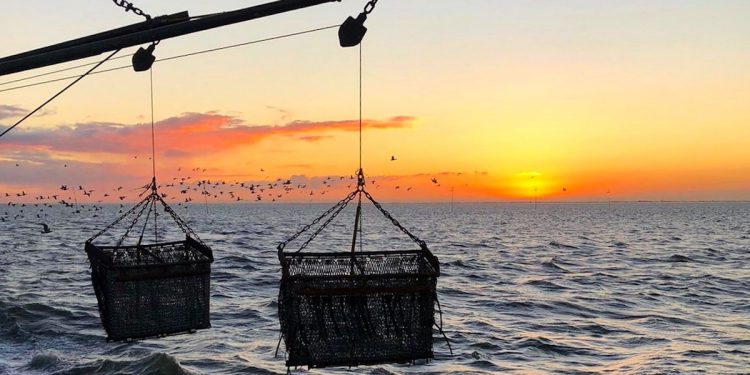Damen Maaskant Shipyards Stellendam is heading a research project to investigate the application of hybrid and fully electric propulsion in the Dutch mussel farming sector.
The project, which is called AQUACULTURe, is a collaborative effort between Damen and numerous parties such as equipment suppliers, service providers and local mussel farming companies.
AQUACULTURe is part of the Damen Shipyards Group’s long-standing hybrid and electric propulsion development programme, which has already culminated in hybrid ferries, hybrid urban public transport vessels, and fully electric inland waterway cargo vessels.

The Dutch mussel farming sector is an internationally recognised and economically important industry.
The shallow and protected waters of the Wadden Sea and the Eastern Scheldt estuary provide the ideal conditions for quality mussel harvests. Mussel farmers grow the mussels either on the seabed or on ropes using the hanging method. They use specially designed flat-bottomed vessels, which are typically diesel-driven, for mussel handling activities.
Damen Maaskant initiated the AQUACULTURe project in response to the ever-increasing significance of reduced exhaust emissions of CO2, particulate matter (PM), sulphur oxides (SOx) and nitrogen oxides (NOx). This, of course, relates to the stricter IMO regulations regarding SOx and NOx emissions and the European Union’s stage V regulations concerning vessels operating on inland waterways.
The subject of hybrid and electric propulsion is not new to the Damen Shipyards Group: numerous hybrid ferry and public transport projects, and fully electric inland waterway cargo vessel projects are well underway. Indeed, it is expected that the AQUACULTURe project will only profit from this previous experience.
Improving system efficiency
The overall aim of AQUACULTURe is to demonstrate the potential of hybrid and electric propulsion to reduce exhaust emissions and increase profitability of operations within the shellfish farming sector. This is with a clear focus on current, in addition to future, regulations.
This led to Damen Maaskant establishing the following three specific goals for the AQUACULTURe project; developing a power supply system that enables fully electric sailing for at least 50% of the time, improving energy efficiency of installations by a minimum of 15%, and reducing CO2, NOx, SOx and PM emissions by a minimum of 50% compared to current levels.
A key starting point for the project was to obtain up-to-date data about the energy needs and efficiency levels of vessels that are currently operating. To this end, Damen Maaskant is working with a number of local mussel farming companies, including Prins en Dingemanse and Neeltje Jans Mosselen that are sharing such crucial data. This includes information about the applicability of exchangeable batteries, the choice of battery and shore power.
Collaborative effort
Various industry stakeholders are also involved in the project. This includes Vripack (design and styling), SIPmarine (hull and propeller optimisation), Maritiem Elektro Zeeland (electrical installation and battery selection), JVS/Technofisica (base measurements of current vessels) and Partners for Innovation (determining environmental impacts).
The initial results of the AQUACULTURe project will be presented by Damen during the 6th International Shellfish Conference, which is being held on 16-17th January at Deltapark Neeltje Jans, the Netherlands.









